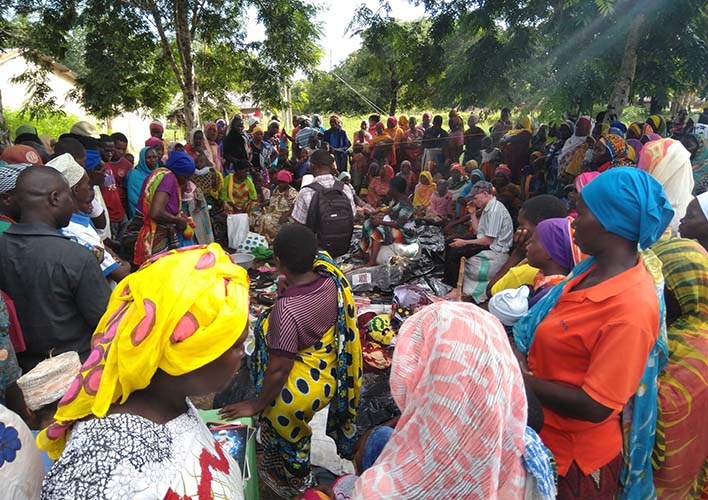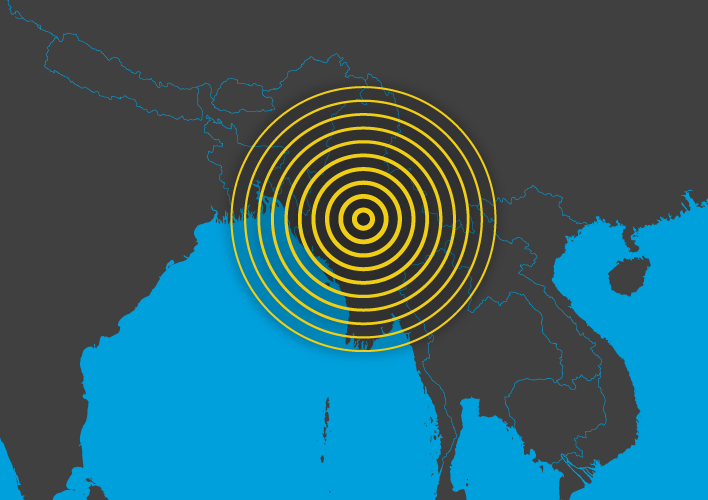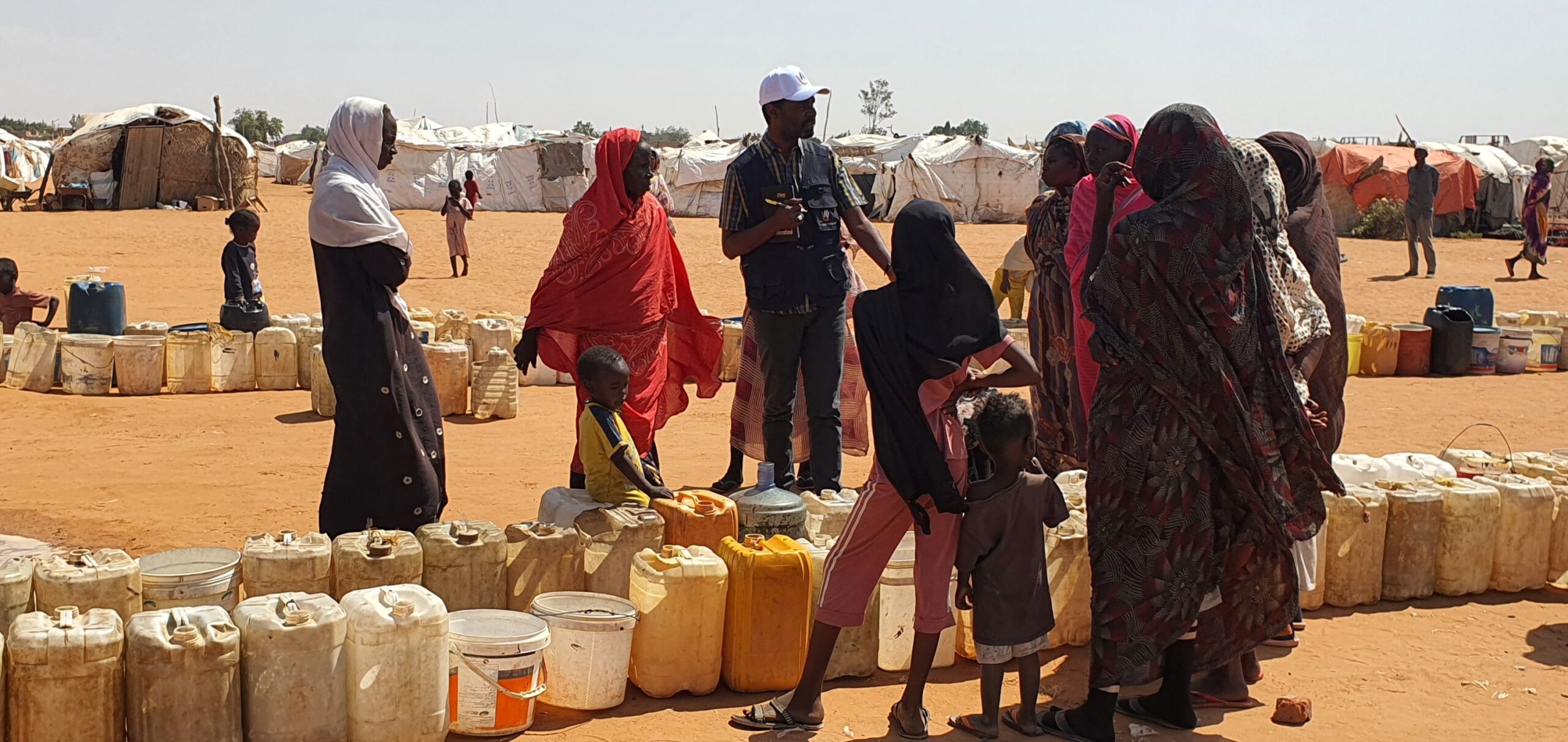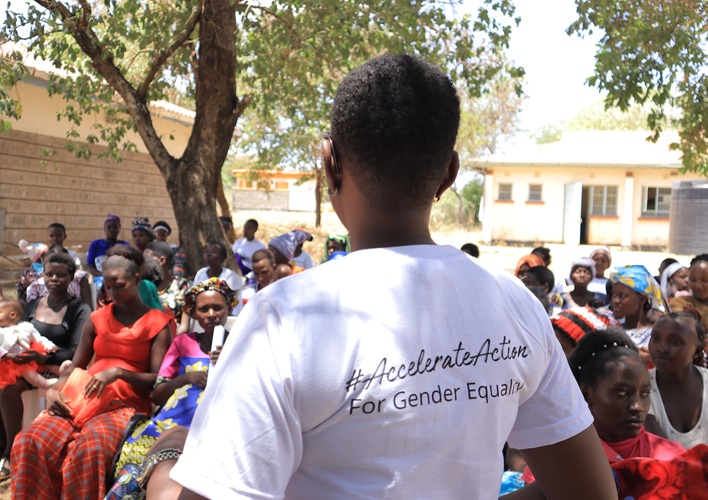In January, floods destroyed crops and other infrastructure in Masasi, Tanzania. Foodgrains Bank member Primate’s World Relief and Development Fund organized an emergency assistance program with the Diocese of Masasi to provide food and seeds to people in the most affected villages. (Photo: Kamuhanda Method)
In late January, before COVID-19 had been named and there were just initial reports of an outbreak in Wuhan, China, people in the Masasi district in Tanzania were dealing with a different disaster. Heavy rains in the south in Lindi region resulted in flash floods that killed 24 people and destroyed homes, phone and electricity lines, bridges and roads. Approximately 25,000 people have been displaced, with two thirds living in temporary settlements and the rest staying with relatives.
In response, the Foodgrains Bank’s Anglican church member, Primate’s World Relief and Development Fund (PWRDF), organized an emergency assistance program with the Diocese of Masasi to run from April to June of 2020. The focus of the program is to meet the immediate food needs in Masasi and to distribute seeds to help rebuild livelihoods.
We are praying much for this situation: for the people impacted by these terrible rains and floods, for the relief workers and all concerned for the relief and rebuilding of their broken lives.—Bishop James Almasi’s letter to Diocese of Masasi
Prior to this project, the partnership between the local Diocese and PWRDF helped families in Masasi for years, and dramatically improved food security in the last four years. But the flood disaster pushed the farmers’ prosperity back several years. The flooding destroyed 4,305 acres of farmland and crops including staples such as maize, rice, cassava and sorghum, and cash crops including cashew finger millet and coconut tress. Small and large livestock were also lost. People now have difficulty accessing safe drinking water as the existing water supply systems were also destroyed.
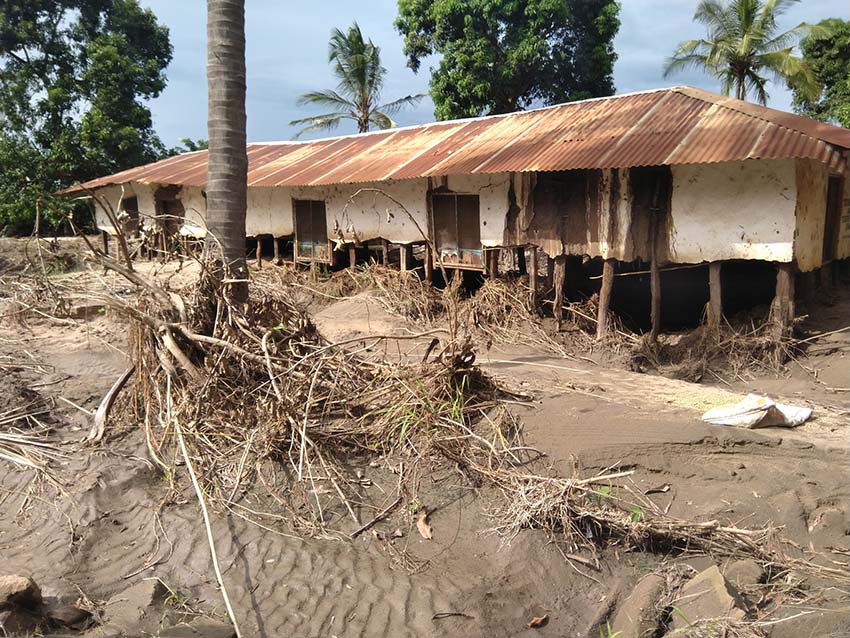
The floods in Masasi, Tanzania destroyed crops, homes, phone and electricity lines, bridges and roads. Approximately 25,000 people have been displaced. (Photo: Kamuhanda Method)
With the strong contacts and relationship that PWRDF had with the leadership of the Diocese, together we were able to quickly organize a response that will provide food and seeds to people in the most affected villages. The program will provide maize flour, beans, cooking oil and salt to 1,000 households, with 700 getting food in exchange for doing work in the community, and 300 of the most vulnerable families simply receiving the rations.
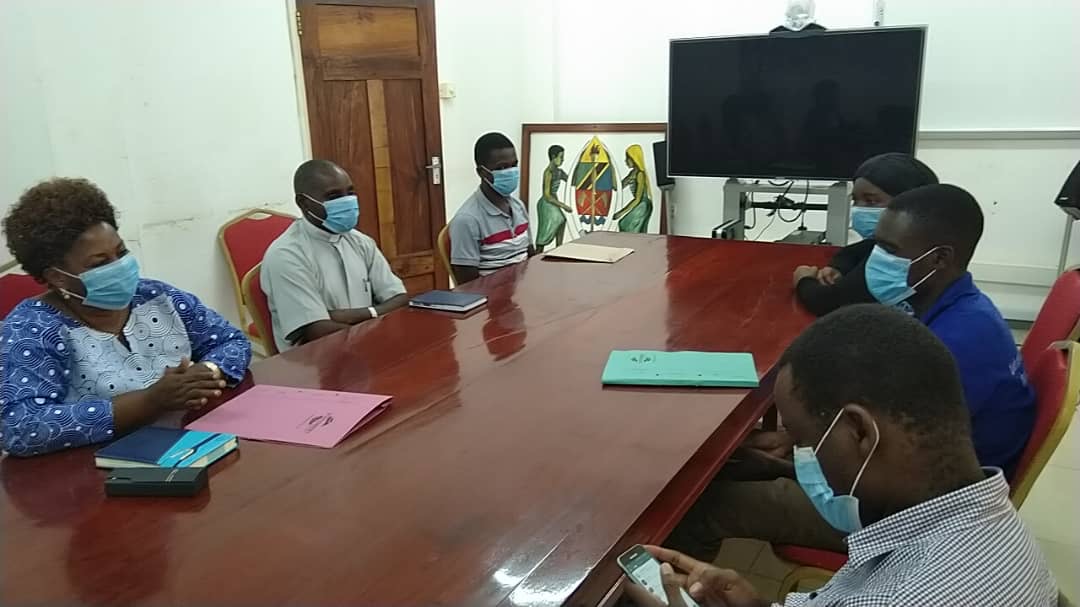
In the Masasi district in Tanzania, some funds have been allocated to extra safety and protective equipment to help protect everyone from COVID-19. (Photo: PWRDF)
This program was already in motion before the COVID-19 pandemic was declared. With this in mind, some funds have been allocated to extra safety and protective equipment for staff and project participants. Funds will provide soap and thermometers for each distribution site to enable handwashing and temperature checks.
By working together with our members and partners, donors and supporters, there is hope that food security will improve for the people of Masasi again.
Story adapted from Foodgrains Bank member Primate’s World Relief and Development Fund (PWRDF).
